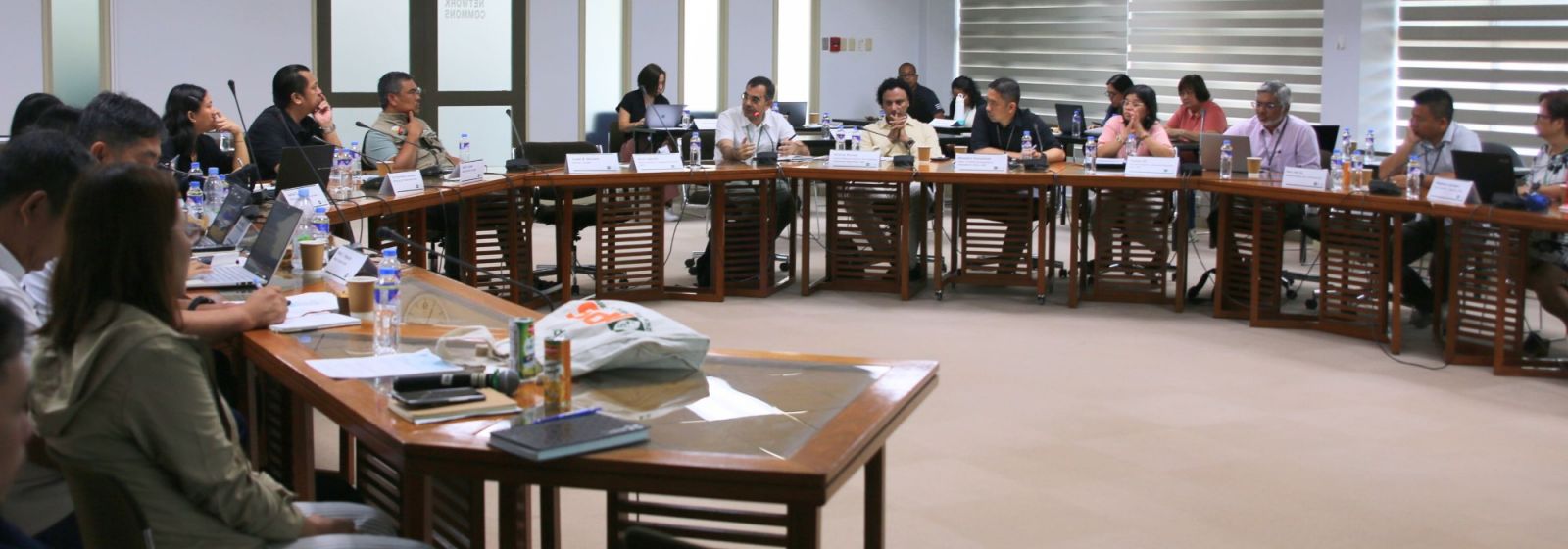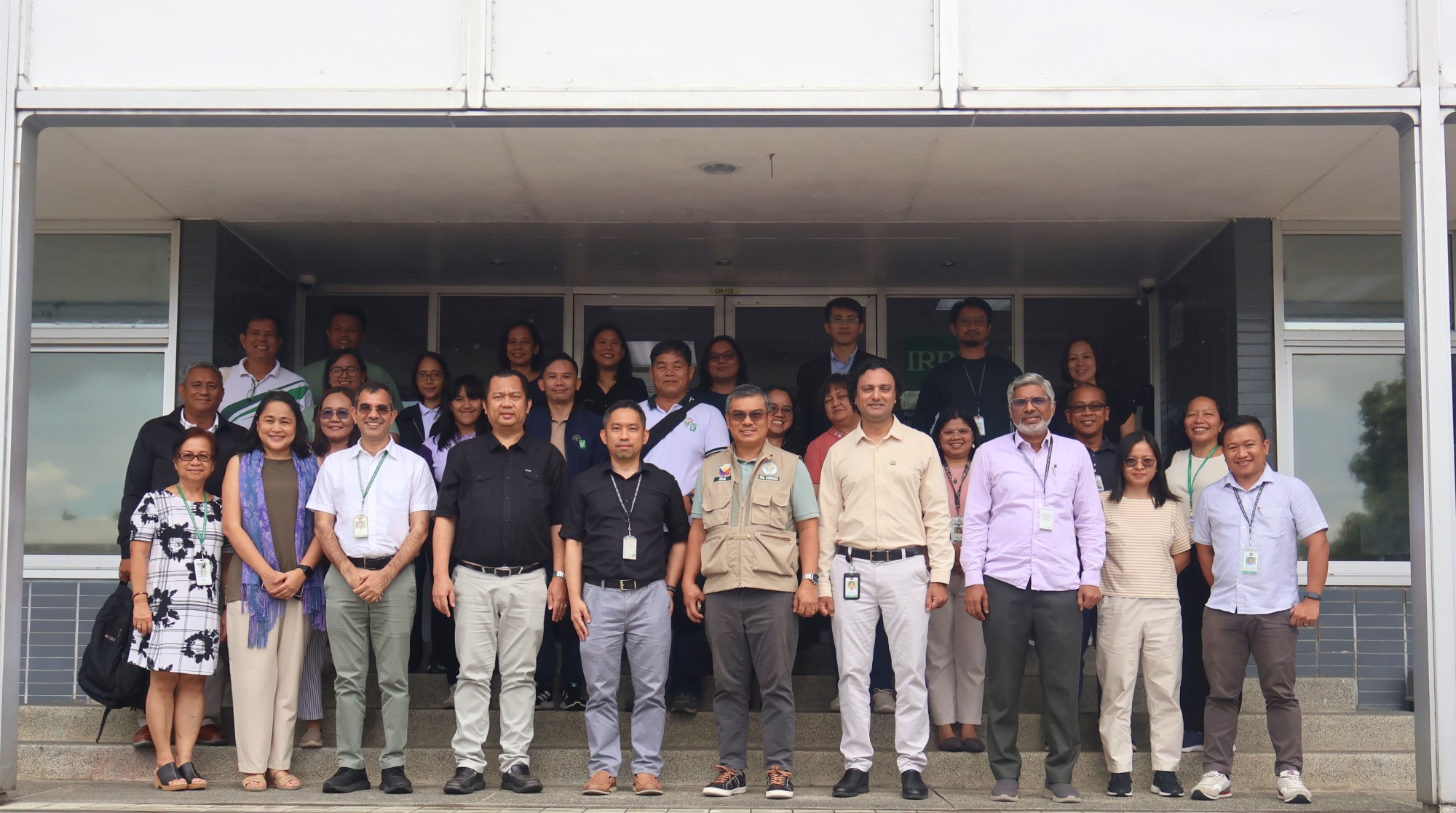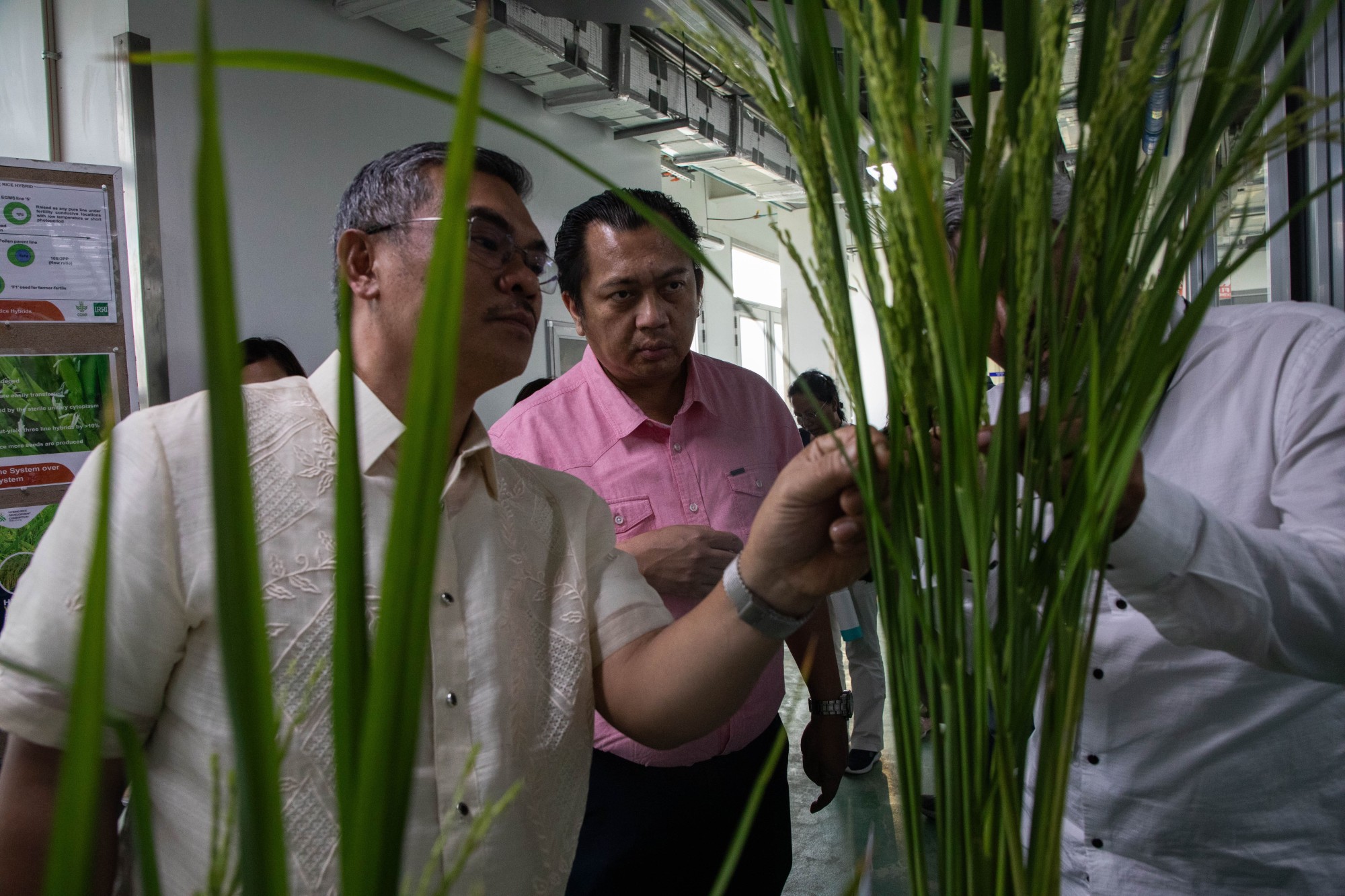DA-BAR and IRRI discuss strategies for advanced rice research and innovation in the Philippines

Los Baños, Laguna (April 30, 2025) — The Department of Agriculture–Bureau of Agricultural Research (DA-BAR), the International Rice Research Institute (IRRI) and research partners including the Philippine Rice Research Institute (PhilRice), the Bureau of Plant Industry (BPI), University of the Philippines Los Banos (UPLB), Bataan Peninsula State University (BPSU), and Visayas State University (VSU), successfully concluded a two-day Joint Research for Development (R4D) Review and Planning Meeting held from April 29 to 30, 2025, at IRRI Headquarters in Los Baños, Laguna.
The high-level engagement brought together key leaders and technical experts from different organizations to assess progress on ongoing collaborative projects, evaluate new research proposals, and explore collaborations to strengthen rice research and innovation across the Philippines.

“This partnership continues to be a driving force behind meaningful agricultural R4D in the country,” said Dr. Junel B. Soriano, Director of DA-BAR. “Our discussions with IRRI and partners reaffirmed our shared vision of building resilient and inclusive rice systems.”
IRRI’s project updates showcased a range of innovative projects and proposals designed to enhance productivity, sustainability, and resilience in rice-based systems. Highlights included OneRicePH, which focuses on scaling market-driven rice breeding technologies, with discussions on improving seed systems and market integration. Updates on Climate Smart Pest Management (CSPM) explored pest control innovations tailored for a changing climate, and the Drones4Rice project which emphasized the need for standardized drone application protocols to enhance precision agriculture. The discussions highlighted the importance of data-driven approaches, technology integration, effective scaling, institutional collaboration, and capacity building to drive meaningful change across the Philippines’ rice sector.
The meeting also spotlighted DA-BAR’s flagship programs focused on advancing sustainable, community-based agricultural innovations, showcasing the bureau’s commitment to inclusive rural development and sustainable rice ecosystems. Key presentations included the Sustainable Community-based Action Research for Development and Extension for Livelihood Enhancement, Upliftment, and Prosperity (SCALE-UP), Sustainable Rice Ecosystems (SURE), and the BPSU-led Sustainable Agriculture Productivity through Appropriate Technology (SAPAT): Upscaling Enhanced Dry Direct Seeded Rice (DDSR) Technology in Rainfed Areas for Increased Rice Production.
The discussions with DA-BAR highlighted the need to scale out proven technologies and to transform innovations into impactful programs starting at the grassroots level. Participants also highlighted the importance of data-driven planning, capacity building, and multi-agency collaboration to strengthen national rice productivity. A strong consensus emerged around the convergence of complementary technologies and a long-term commitment to climate-smart, resource-efficient rice systems.

Several new project proposals were also introduced, covering topics such as sustainable rice byproduct management, the use of digital tools and AI to support farmers, strengthening seed systems, and improving the nutritional quality of rice. Other initiatives focused on resource-efficient production methods and advanced pest surveillance using data and analytics to enhance yield protection.
“We deeply value our longstanding collaboration with the Department of Agriculture and DA-BAR,” said Dr. Yvonne Pinto, IRRI Director General. “By combining our scientific capabilities with DA-BAR’s policy leadership and national reach, we’re better positioned to deliver real-world impact that benefits both Filipino rice farmers and the environment.”
This joint review and planning meeting marked another important milestone in the enduring partnership between IRRI, DA-BAR, UPLB, PhilRice, BPSU, VSU, and BPI—driving science-based solutions for the future of Philippine rice agriculture.